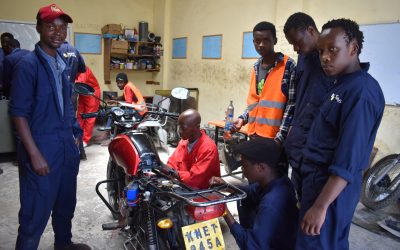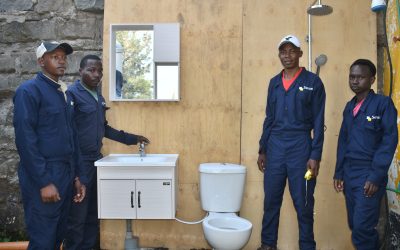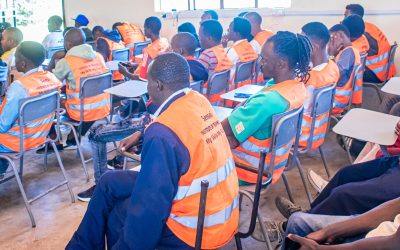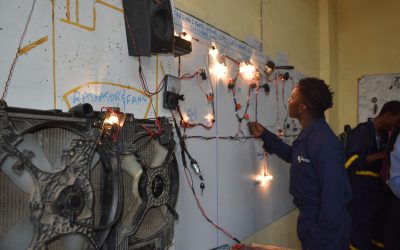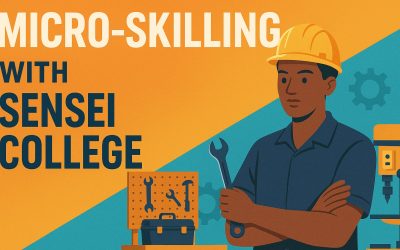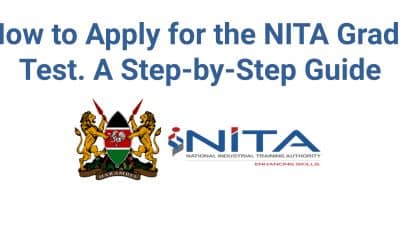Employability Skills in Kenya: Building a Competent Workforce for the Future
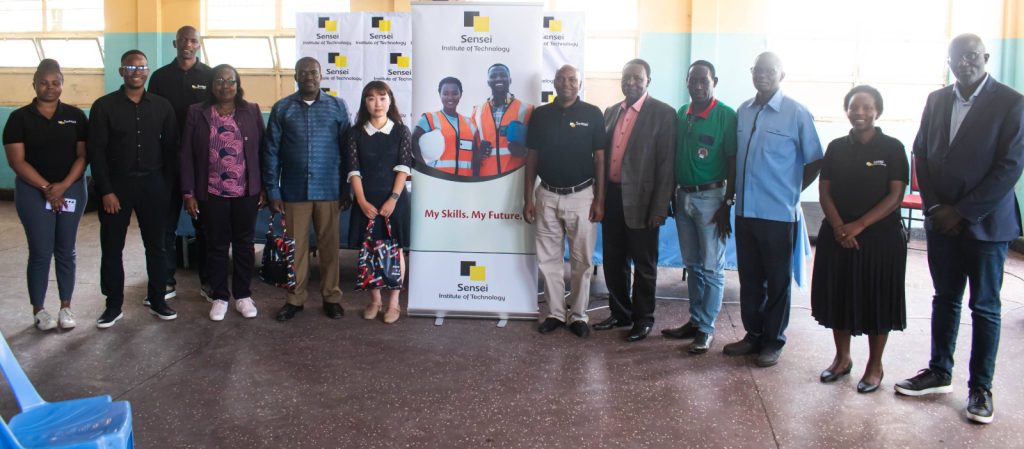
In today’s fast-changing job market, employability skills in Kenya have become a national priority. Employers are no longer impressed by academic papers alone — they want graduates who can apply knowledge, demonstrate skills, and adapt to change. As industries evolve and technology reshapes work, Kenya’s ability to produce competent, work-ready graduates will define its economic future.
This is where Sensei Institute of Technology plays a transformative role. Through its hands-on, industry-driven programs, Sensei College is equipping young people with the employability skills that power both jobs and enterprises — turning learning into productivity and opportunity.
Why Employability Skills Matter in Kenya
Across Kenya, thousands of young graduates enter the job market every year — yet many struggle to find meaningful work. The challenge isn’t the lack of education, but the mismatch between classroom learning and workplace expectations.
Employers consistently emphasize the need for graduates who are:
- Technically skilled, with the ability to perform practical tasks;
- Critical thinkers, who can solve real-world problems;
- Communicators and collaborators, able to work effectively in teams;
- Innovators, ready to create new ideas, products, and businesses.
These are the core employability skills in Kenya that determine whether education leads to employment — or frustration.
From Knowledge to Competence: The New Education Mindset
For decades, Kenya’s education system emphasized theory and exams over application. But the world of work demands more. Today’s employers want graduates who can think, act, and deliver — not just recall facts.
That’s why the Competency-Based Curriculum (CBC) is such a critical step forward. By focusing on skills, creativity, and problem-solving, CBC aligns with global trends that value competence over memorization. It’s about producing learners who can contribute meaningfully to the economy — not just pass exams.
Sensei College: Bridging Education and Employability
At the heart of this transformation is Sensei Institute of Technology, a trailblazer in practical, competence-based education. Sensei’s mission is clear: to bridge the gap between learning and earning, by developing the employability skills Kenya’s industries truly need.
Through its “Skill. Qualify. Empower.” model, Sensei ensures that every student graduates with both technical expertise and workplace readiness. Courses are designed around hands-on experience, real-world projects, and industrial attachments, so that learning mirrors the realities of modern workplaces.
Sensei’s training covers a wide range of fields — including automotive technology, construction, electrical installation, ICT, hospitality, and entrepreneurship. Students spend most of their time practicing in workshops, labs, and live projects, gaining the confidence and competence employers demand.
Industry Partnerships that Power Employability
One of Sensei’s biggest strengths is its close partnership with industry leaders and employers. These collaborations ensure that training programs remain relevant to market needs and technological changes.
By integrating employer feedback and offering structured internships, Sensei creates a pipeline of job-ready graduates. Companies benefit from a reliable source of skilled talent, while students gain the employability skills in Kenya that make them immediately valuable in the workforce.
In addition, Sensei’s global collaborations such as the Global Insights for Secondary Education workshops featuring experts from Korea and the U.S. expose Kenyan educators and learners to international best practices in competence-based learning. This ensures that Kenyan graduates are not only regionally competitive but also globally relevant.
Empowering Youth for a Skilled Future
Kenya’s economic growth depends on its people especially its youth. To achieve Vision 2030 and beyond, the country needs a generation that can build, innovate, and lead. Developing employability skills in Kenya is therefore not just an educational goal; it is an economic necessity.
By emphasizing critical thinking, teamwork, digital literacy, entrepreneurship, and adaptability, Sensei College helps students succeed in diverse career paths — whether in formal employment or self-employment.
“Education must prepare learners not just for exams, but for enterprise — to build, to innovate, and to power Kenya’s industries,” says John Kang’ethe, Managing Director of Sensei Institute of Technology.
Sensei’s Role in Kenya’s Competence Revolution
Every Sensei graduate leaves not only with a certificate but with the confidence and competence to create value in the workplace. Through its practical programs and mentorship culture, the institute continues to shape Kenya’s next generation of technicians, innovators, and entrepreneurs.
By championing employability skills in Kenya, Sensei Institute of Technology is helping bridge the national gap between education and employment — ensuring that learning leads to livelihoods, productivity, and progress.

